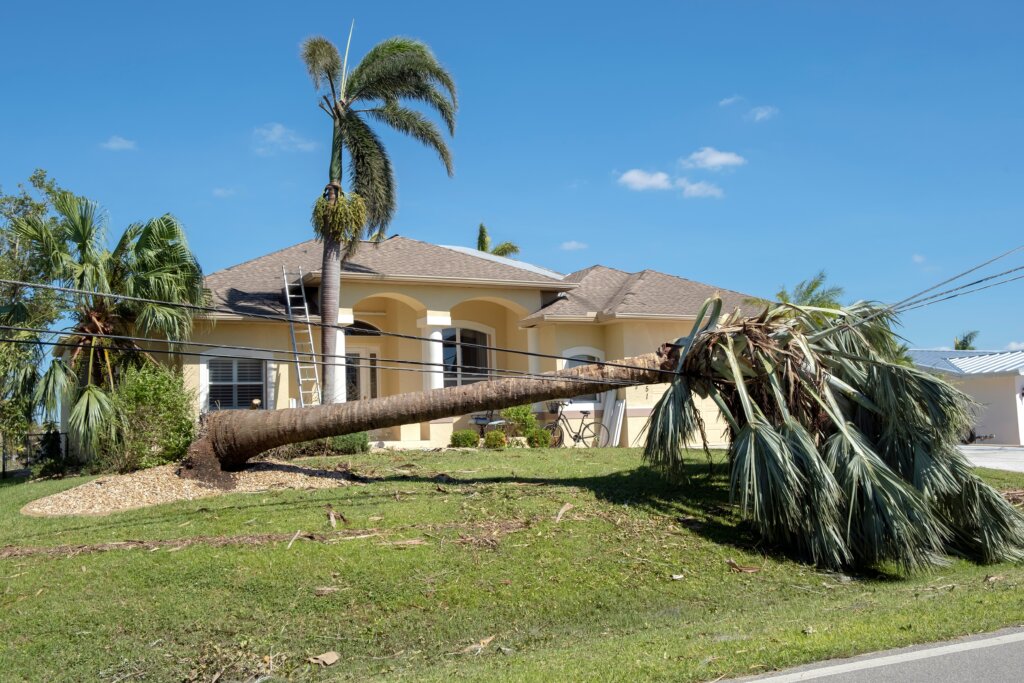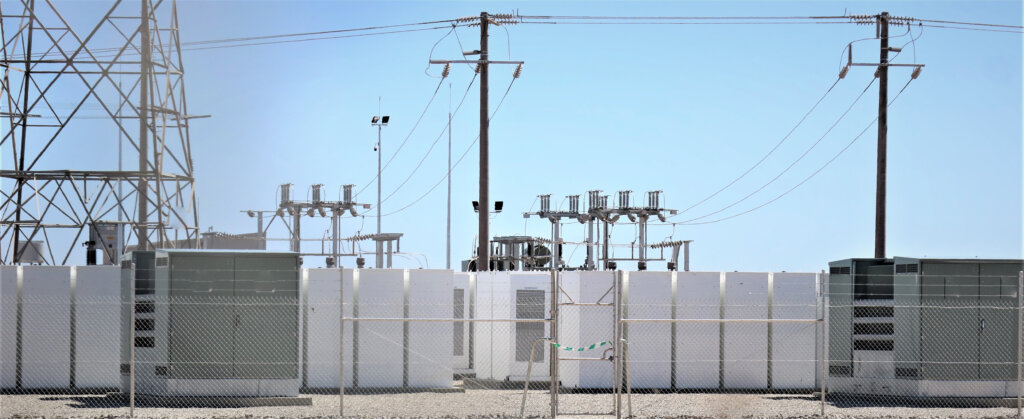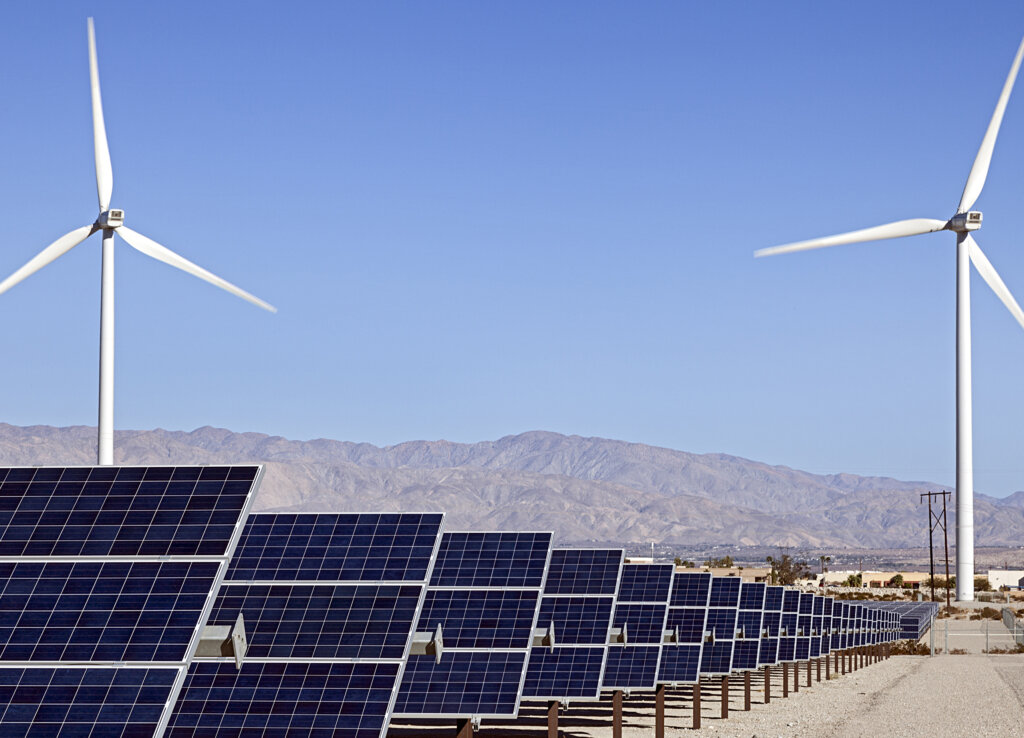What happens when powerful tornadoes, hurricanes, wildfires, and extreme weather leave your business and customers with prolonged power outages?
Off-grid resilience strategies and solutions can be the key. From portable power distribution to comprehensive renewable energy systems, these technologies offer a practical approach to ensuring electrical power resiliency during emergencies. When destructive storms and natural disasters strike, having a robust off-grid solution not only enhances life safety but also expedites emergency power restoration … thus mitigating the chaos and challenges brought on by an extended power grid failure.
Importance Of Off-Grid Solutions
Off-grid solutions are crucial in maintaining power continuity during natural disasters. They offer resilience against unexpected power outages, ensuring that critical services like healthcare, data, communication, and life-safety systems remain operational.
Such technology empowers communities and organizations to withstand and quickly recover from the debilitating impacts of power outages caused by utility grid damage and failure.

Ensuring Electrical Resiliency
Implementing off-grid solutions ensures continuous power during natural disasters, and enhances the ability to maintain operations when the traditional utility grid is compromised.
Renewable sources like solar and wind boost resiliency. Coupled with battery energy storage systems (BESS), these off-grid solutions provide a sustainable energy backup that outperforms conventional generators. By integrating BESS with off-grid setups, critical facilities and operations can store surplus energy generated during optimal conditions, and therefore use that energy during power outages. This approach maximizes energy availability and reliability.
Many commercial and industrial businesses are beginning to take a different path to electrical resiliency through the use of microturbines fueled by natural gas … also known as Remote Power Units (RPUs). The use of microturbines to generate electricity is a growing trend in the energy sector, providing a reliable and efficient power source during natural disasters and utility grid outages … as well as in resiliency applications in general.

Enhancing Life Safety
Reliable power is critical for maintaining life safety during natural disasters. Off-grid solutions ensure that essential services are not interrupted, including:
- Emergency medical services: Powering medical devices and triage units, as well as maintaining refrigerated storage for medications.
- Communication systems: Keeping network communication lines open for emergency response and coordination.
- Clean water supply: Ensuring water purification and pumping systems remain operational.
Portable power units can be quickly deployed to disaster sites, providing immediate and versatile electricity sources. These solutions help minimize the disruption caused by power outages … thus protecting lives and supporting recovery efforts.
Portable Renewable Energy Options
Portable power solutions encompass a variety of technologies, each suited to specific scenarios. Generators and BESS are popular among these options, offering distinct benefits for maintaining continuous power in critical situations.
Generators typically run on gasoline or diesel, making them robust yet dependent on the expense and availability of fuel. On the other hand, BESS rely on stored electrical energy, providing a cleaner and quieter power source. Both solutions are essential in ensuring power continuity during unforeseen outages, thus enhancing system resilience.
Solar panels with battery storage, can provide off-grid power vital for critical infrastructure and emergency services. Although less portable, wind and hydropower offer dependable alternatives. Their implementation can drastically reduce dependency on traditional grid systems, enhancing overall electrical power resiliency.
Solar Power Systems
Solar power systems offer a highly reliable solution as a preparation for and response to natural disasters. These systems, equipped with photovoltaic panels and battery energy storage, harness renewable energy to provide consistent power, even when grid systems fail. These solar systems are designed to capture sunlight and convert it into electricity, delivering a sustainable source of power for a variety of applications, including emergency services and essential infrastructure.
The modularity of solar power systems allows for scalability. For example, commercial, industrial, and residential installations can be expanded to meet increasing power needs … ensuring an adaptable and resilient energy framework that can be tailored to specific requirements.
Incorporating solar power systems in disaster preparedness strategies enhances life safety by maintaining critical operations and communication systems. Their ability to operate independently from the traditional grid system makes them an indispensable resource, particularly in regions prone to frequent storms and natural disasters, thus fortifying our overall resilience.

Wind Power Solutions
Wind turbines generate electricity by converting kinetic energy from wind into electrical power, and offer a robust off-grid solution. Small-scale turbines can be deployed rapidly and can provide energy for both residential and emergency applications. Consequently, they play a critical role in community resilience during natural disasters.
Wind energy is particularly effective. Unlike solar power, wind turbines can operate day and night, thereby ensuring continuous power generation. This attribute makes wind turbines an incredibly reliable resource for maintaining vital operations when grid power is compromised. Additionally, integrating wind solutions with other renewable energy sources and storage systems can maximize efficiency and ensure a steady energy supply.
Emergency Power Restoration
Emergency power restoration aims to minimize disruptions and restore essential services swiftly after a power outage. Rapid deployment, remote diagnostics, and pre-positioned resources are critical components to ensure that power is quickly brought back online following storms and other natural disasters.
These methods significantly shorten downtime and enhance community resiliency by ensuring continuous access to necessary services and infrastructure.
Fast Deployment Strategies
Effective off-grid solutions require rapid deployment to mitigate the impact of power outages during natural disasters. Fast deployment minimizes downtime and maximizes community resilience, and can be accomplished via:
- Pre-packaged Systems: Allowing portable solar, wind, and battery storage systems to be setup quickly.
- Modularity: Utilizing modular components for scalability and flexibility.
- Remote Monitoring: Implements systems with remote diagnostic capabilities for efficient maintenance.
- Strategic Pre-positioning: Stores critical equipment in locations within proximity to disaster-prone areas, which enables power recovery equipment to be quickly ordered, shipped, and deployed.
- Training Programs: Educate local teams on the setup and maintenance of off-grid solutions.
Individually or combined, each of these strategies enhance the efficiency and effectiveness of emergency power restoration efforts.
Summary
In conclusion, off-grid power solutions are indispensable for ensuring electrical resiliency in the wake of tornadoes, hurricanes, wildfires, and other natural disasters. By integrating portable power and renewable energy sources, power industry professionals can significantly mitigate the impact of power outages caused by these and other emergencies. Investing in these technologies not only enhances life safety but also ensures rapid power restoration, stability, and reliability in critical situations.
Stay prepared and plan ahead for natural disasters and utility grid outages. Talk to our team of application solution specialists to learn more about how off-grid power solutions and strategic power restoration equipment locations can enhance your electrical resiliency.